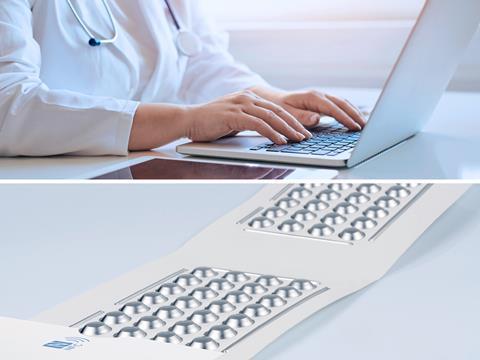
Schreiner MediPharm has launched its upgraded Smart Blister Wallet – a digitally-enabled tool that allows pharmaceutical manufacturers to track compliance in their clinical trial participants automatically and with greater flexibility.
Compliance with prescribed medications is crucial for the success of a therapy—especially in the case of clinical trials. Digital tools such as Medication Adherence Monitoring enable pharmaceutical manufacturers to track compliance of their trial participants automatically.
With the 32-cavity Smart Blister Wallet, Schreiner MediPharm already has a solution in its portfolio that provides the requisite digital support. For greater flexibility, the Blister Wallet has now been extended to 64 cavities that can be individually tracked electronically.
The evolution of the Smart Blister Wallet featuring twice as many cavities as before can be implemented for all blister designs as well as for two- or multiple-fold blisters. This reportedly prolongs the period of time during which the wallet can be used, and enables extended integration of several dosage strengths.
Schreiner MediPharm supplies the cardboard box including the integrated conductive tracks and printed circuit board to the pharmaceutical manufacturer or contract manufacturing organization (CMO).
They can process the smart packaging as usual and fill it with the respective tablet blister. For patients and healthcare professionals, the company says that the extendable version is equally convenient to use: easy push-through removal of tablets, simple NFC-based data reading at one point on the wallet, irrespective of the number of blister cards it contains.
For clinical research, there are reported benefits as well. For instance, the digital Smart Blister Wallet apparently delivers enhanced and more reliable data quality, reduces the failure rate due to non-adherence to prescribed medications, helps reduce trial periods and costs, and accelerates approval and time to market for new drugs. In addition, its creator says that it enables more efficient processes by eliminating manual tasks such as documentation by hand and counting of pills.
This article was created in collaboration with AIPIA (the Active and Intelligent Packaging Industry Association). Packaging Europe and AIPIA are joining forces to bring news and commentary about the active and intelligent packaging landscape to a larger audience. To learn more about this partnership, click here.














No comments yet